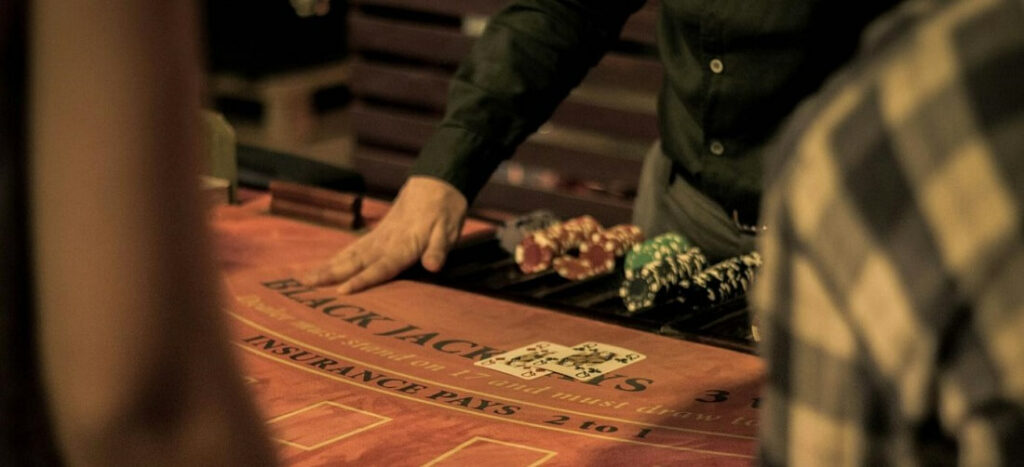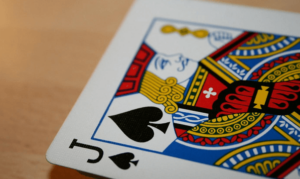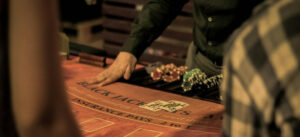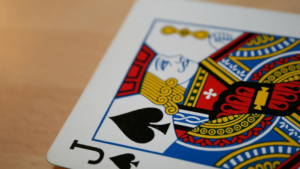How to Deal Blackjack

A truly engaging casino game depends heavily on having a clear structure and rewarding opportunities for players. While the rules of blackjack are straightforward, it's crucial to grasp the dealer's methods and purpose behind their card dealing.
At Betsquare, we offer more than casino reviews It's the reason we've put together this insightful guide to help you understand the dealer's crucial role in managing blackjack hands at the table.
Preparing the Deck
Curious about how a deck gets prepared before it's used in the game? Let's explore the procedure from the dealer's perspective, following the essential rules of blackjack:
- Preparing blackjack deck To ensure the game remains fair and unbiased, it's a good practice for the dealer to start with a fresh deck, preventing any possibility for unfair advantage.
- Washing the cards: Dealers usually start by 'washing' the cards—spreading them all face-down on the table and mixing them up thoroughly, guaranteeing each card makes contact with the surface. Pick them up without peeking at their faces.
- Riffle After shuffling, split the deck into two; hold each half in one hand. With the corners close, use your thumbs to interleave the cards from bottom to top, forming a unified deck. Repeat as necessary to ensure randomness.
- Box cut Now, take the deck, cut roughly a quarter off the top, place it on the table, and keep doing this until you've reassembled the whole deck. This ensures a smooth and randomized shuffle.
- Another optional riffle Shuffling isn't just a formality; it's vital to ensure a fair game, so feel free to repeat the riffle shuffle if you feel it necessary.
- One-handed cut Avoid the temptation to use both hands when making the cut, as this could leave room for players to suspect cheating. Simply divide the deck with one hand, placing halves side by side, then assemble them back together.
- Burn a card Before handing out the cards, deal one face-down card—referred to as 'burning' a card—to thwart any potential cheating by marking. Only quickly show the card's back.
Blackjack Betting Rules
A player casually tossing a pair of kings during a gambling session is quite different from...
the precise approach required in blackjack betting, where stakes must be placed in full before the cards come into play, contrasting with poker's staged betting process. poker Before cards are flipped onto the felt, coordinate your wager with the dealer. This step prevents any late bet controversies or cheating accusations, often seen in certain roulette scenarios.
In a head-to-head blackjack game with just one player, the proceedings are straightforward. Once shuffled, the dealer hands you an open card to reveal its value.
Blackjack Dealing Process
The dealer also draws a visible card for themselves and then you receive another card face up, giving visibility to your card total. Conversely, the dealer receives their second card face down, keeping its value discreet.
You'll now assess the total of your open cards and contemplate if you want to 'hit' for more cards or 'stand' as is. For instance, if dealt a two and three, additional cards might be advisable. blackjack card order.
Should you draw a seven on your subsequent action, elevating your total to 12, the dealer pauses their actions until you've decided between standing and risking a 'bust'.
Going bust eliminates the need to consider the dealer's subsequent moves since your stake dissolves. However, deciding to stand under 21 requires the dealer to reveal if they can surpass your total without busting themselves.
Each round involves the dealer revealing their hidden card and, if required, proceeding closer to the coveted 21 mark without exceeding it.
Always burn a card before a fresh deal begins to maintain integrity within blackjack gameplay.
Blackjack's insurance bet feature controls risk when the dealer reveals an ace. Prior to the second card's revelation, players can opt for insurance, shielding against the dealer securing a blackjack.
Dealer’s Actions and Insurance
So, how exactly does this work? If your foe reveals an ace, place an insurance wager—a safety net against the dealer scoring blackjack. Should they draw a ten or face card, the insurance pays 2:1. Otherwise, if no blackjack ensues, the game continues minus the insurance bet.
Strategic elements, including insurance decisions, hinge on the state of your cards. Consider not opting for insurance on a robust hand to avoid eating into profits, though this path harbors risk.
The action steps in blackjack depend on the cards in play, yet they generally follow a consistent pattern.
Blackjack Rules – Playing the Hands
First, players place wagers before the initial card dealings.
- The dealer shuffles and begins card allocation from the left, giving two face-up cards to each player and a single face down in their own case.
- An ace-formed dealer hand provides the chance for insurance bets, sidestepping continues gambling proceedings.
- Weighing the sum of your two cards, decide whether to hit for another or stand firmly.
- Your game ends if you exceed 21 or decide to stand; prevailing against the dealer's lower hand means victory.
- Rules accommodate splitting, allowing same-valued cards to form two separate hands. Doubling down—that gives a player a chance to increase stakes and take an additional card—can follow confident predictions.
The match concludes upon surpassing the dealer by reaching a nimble 21, witnessing the dealer pirate your victory, or stumbling beyond 21 total.
Concluding the Game
Familiarity with the betting resolution isn't necessary; savvy casino dealers will finalize results with professional accuracy.
At-home settings benefit from designating a neutral overseer to ensure equitable conclusion and fair settlement; dealers must strive for consistency across locations.
Transforming casual evenings into competitive entertainment, home blackjack parties promise fun. Still, understanding comprehensive rules makes the amusement fulfilling for everyone.
Hosting a Blackjack Party
Trust within friendly games leans away from fresh decks, and amidst close circles, fair play prevails despite markings—keeping assurances.
Rotational dealing during parties enhances enjoyment while alleviating the monotony of card distribution from a sole person.
Integrity encourages fairness amidst transactions, prioritizing experiences over monetary fixes. Jokesters decline shifty methods like edge sorting or card counting.
Ensuring Fair Play
A casino—physical or virtual—guarantees procedural adherence because proficient dealers maintain unquestioned standards.
Home blackjack can generate discontent if rules abandon accuracy amid disparities, impairing the enjoyment of fun.
A sound understanding of blackjack mechanics refines the gameplay experience and stakes accuracy, with dealer precision vital.
Bottom Line
Our resource offers a wealth of gaming insights, pinpointing distinguished online casinos, betting apps, and places where your play flourishes.
Betsquare Jump into the online arena and explore top-tier platforms for the iconic 21-card blackjack battle. cryptocurrencies .






